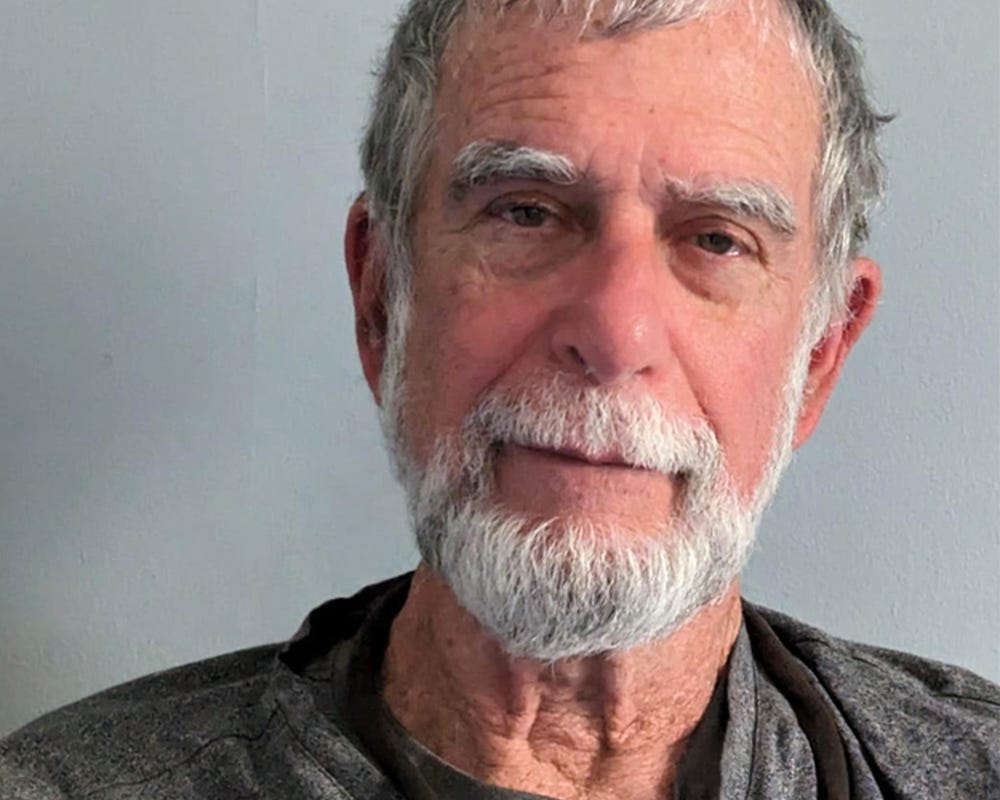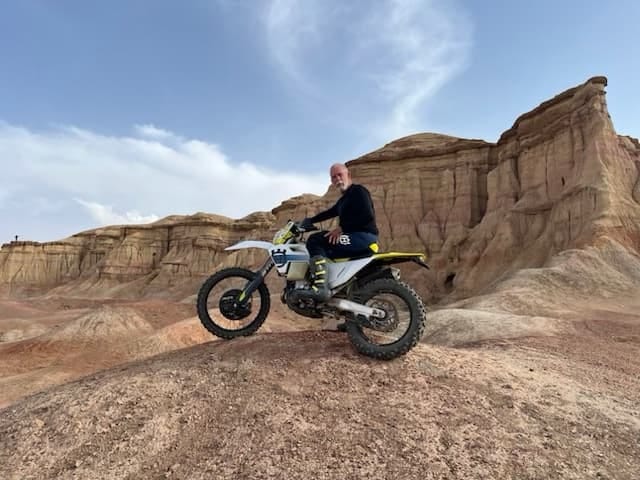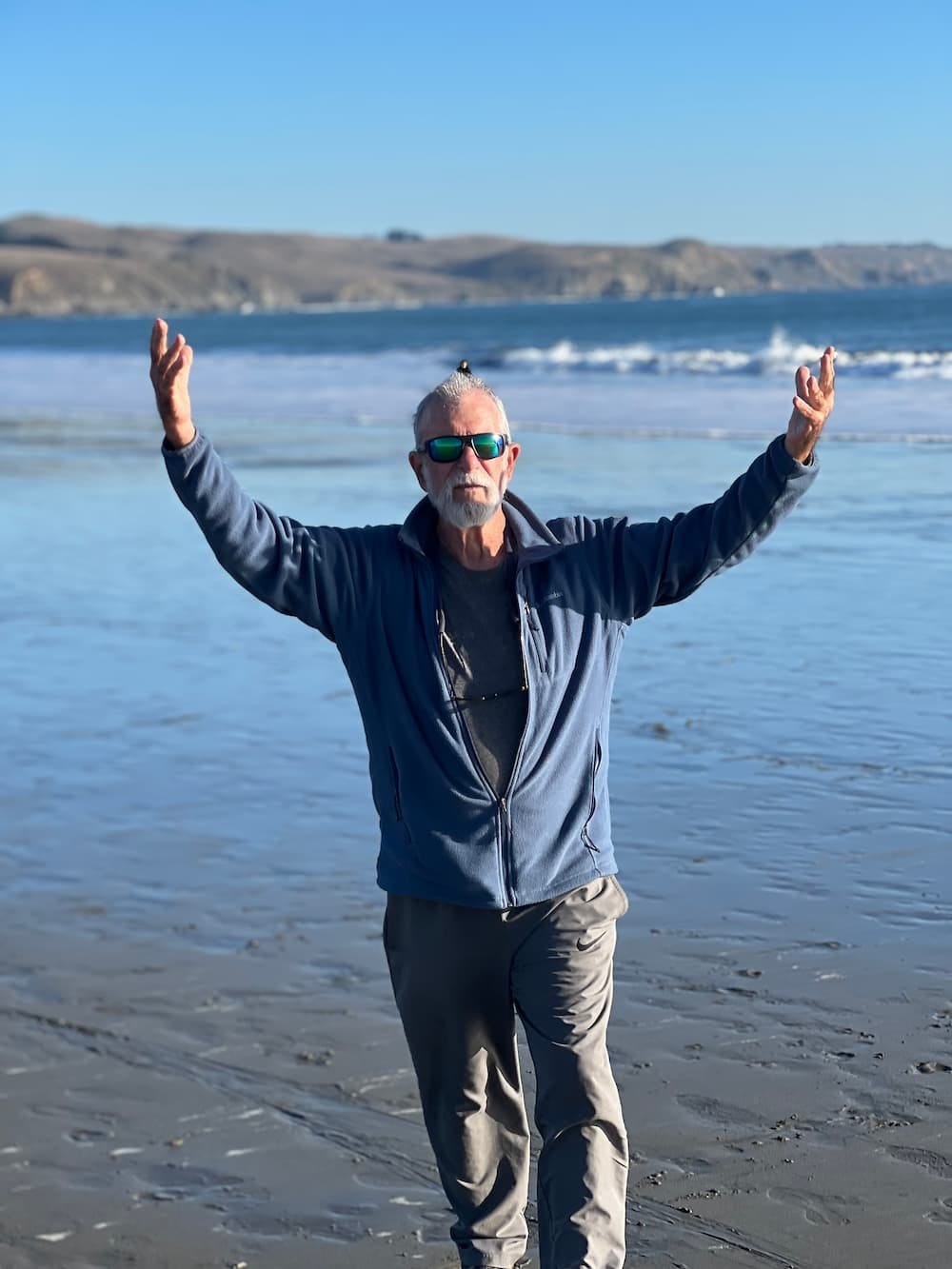Local psychologist, educator and lecturer Ofer Zur has died
Well-known for his outspoken defense of Gaza, Zur was an intellectual light in Sebastopol. He will be missed.

Psychologist, educator, and lecturer Dr. Ofer Zur died suddenly after a short illness on Wednesday, Feb. 19, 2025. He was 75.
Sebastopol Times readers may be familiar with Zur through his own work or through articles we wrote about Zur’s view of Gaza and his recent meditation on death that he shared at Science Buzz Cafe in late January.
Zur was born in Israel in 1950. His father was a Hungarian Jew, who worked as a labor organizer. His mother, a German Jew, was a psychologist with a rigorous and a curious intellect.
Zur got his B.S. in physical chemistry from Hebrew University of Jerusalem, in 1975. He studied psychology at Haifa University in Israel, before getting his M.A. in counseling psychology from Lesley College in Cambridge, Massachusetts in 1981. He received his Ph.D. in psychology from the Wright Institute, in Berkeley, California, in June 1984.
From 1990 until recently, he worked as a psychotherapist, consultant and educator. From 1995 to 2020, he offered online continuing education courses for psychologists through the Zur Institute, based in Sebastopol.
But mostly, he was an adventurer—both intellectually and in the real physical world. His early military experiences in Israel (some of which he later regretted) marked him for life—and shaped his worldview. He was also an adventurous world traveler—via motorcycle, kayak, scuba diving, and on foot—in Africa, Asia, Alaska (and seemingly everywhere in between).
But mostly it was his psychological courage and depth that struck the people who knew him.
“Ofer and I met through our shared profession of psychology,” said Gretchen Kubacky, Psy.D., a psychologist and bereavement counselor. “He was a nonconformist—an independent thinker in a rule-bound profession—and I appreciated his novel takes on classic ethical conundrums. Not everyone liked what he had to say, but he certainly made everyone think. We struck up an email friendship a few years ago, and had lively exchanges about everything from psychology to baking to his Israeli roots. I valued his honesty, clarity, and unique perspectives, and will deeply miss his irreverent takes on life, tempered by his deep thinking, respect, kindness, and generosity.”
Bettina Brandt, who worked with Ofer documenting his life for his website, explained it this way: “I witnessed Ofer’s sensitivity, depth, and creative imagination from the moment we met. Our collaboration began that day, weaving wisdom and truth into storytelling while documenting his reflections on life with integrity, clarity, purpose, and urgency, a meaningful process of surrender, letting go, and loving acceptance… [Ofer was] unapologetically bold, endlessly curious, generous, and deeply caring. Understanding him strengthened me.”
Zur leaves behind his wife Jennifer and three adult children Azzia, Eitan, and Ilan.
His daughter Azzia wrote of him, “Ofer was a real trailblazer. He was loyal, passionate, and incredibly loving. I went through many years of being lost as a young adult, and he waited patiently and remained available while I came home to myself and to him. We grew super close again in the years before he passed, much like when I was young and he was a single father. I traveled from Berkeley to Sebastopol every month, and we would talk for six hours, about anything and everything. He approached life as an adventure and inspired us kids to do the same. I’m grateful every day for our connection.”
For those who wish to honor Dr. Ofer Zur’s memory, his family has invited donations to Amnesty International, an organization that aligns with his lifelong commitment to justice and human rights.
Writing from Ofer Zur
Zur shared this story—his memory of an experience during the Yom Kippur War—on his website and at a recent Science Buzz Cafe on the topic of death.
Thumbing My Nose at Death on a Bridge of Fire
Towards the end of the 1973 war, my unit was finally deployed. We were assigned to cross a bridge across the Suez Canal and head north towards the revered city of Ismailia. At this point of the war the Egyptian army was highly concerned that if the Israeli Armed Forces crossed the Suez Canal, they would subsequently have a clear path to Egypt’s capital, Cairo. As a result, the Egyptian army was defending the bridge that my unit had been assigned to with all their remaining military might, relying on intense artillery bombardments, air force bombings, and anti-tank guided missiles to deter the incoming Israeli army. When we arrived, Israeli tanks, personal carriers and jeeps were on fire and literally flying off the bridge. It was an intense game of chicken between the Egyptian bombings and the Israeli military engineering unit, which was rapidly rebuilding and repairing the repeatedly hit and damaged bridge. Amazingly they were able to keep rebuilding despite the catastrophic losses they were suffering.
Then, I received my orders: we were commanded to cross this fiery strip and move deeper into Egypt. While the rest of my unit quickly jumped into vehicles and sped as fast as they could into the clouds of smoke that covered the bridge, my recklessness, bravery and perhaps my stupidity spurred my buddy and me to cross this death zone by foot. As fire and metal rained down around our unprotected bodies, we sarcastically argued over who would be the first to die, and who would get to put a wreath on the grave of the other at the prestigious famed national military cemetery on Mount Herzl in Jerusalem. Halfway across the bridge I suddenly felt compelled to stop. A strange sense of calm and quiet came over me despite the deafening bombs and missiles exploding all around. Almost engulfed by the chaos and destruction, I looked up at the sky and extended a defiant middle finger to God, a gesture by which I was telling Death, “I do not fear you!”
This attitude of fearlessness towards death, which has harmoniously and consistently coexisted with my deep reverence for life, has revealed itself in multiple ways throughout my life, such as in my predilection for leaving hospitals against medical advice, diving the magical but lethal Blue Hole, shooting the light bulb, challenge-riding a motorcycle in the Himalayas surrounded by 4,000-foot drops and many other death-defying ventures. My mother vowed she wanted to ‘die erect,’ so perhaps there’s a strain of this mentality I inherited from her!
You can find more at drzur.com.




Though I did not know him I gasped when I read the headline. I saw Dr Zur twice at Science Buzz Cafe and respected him based on those two talks. I am sorry to hear he has passed. He seemed like an honest and positive man.
A most intriguing man. I'm glad I was able to meet him when I did (literally a few days before he passed, as it were).